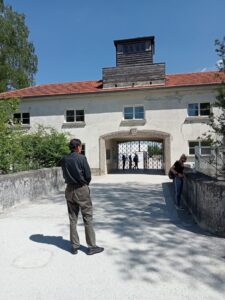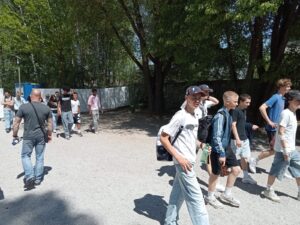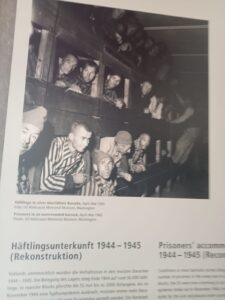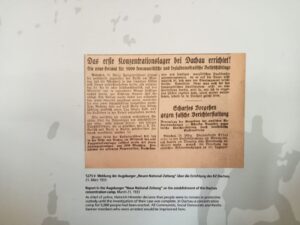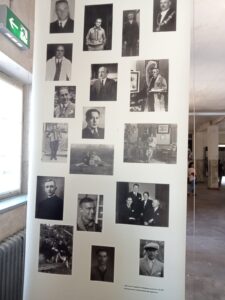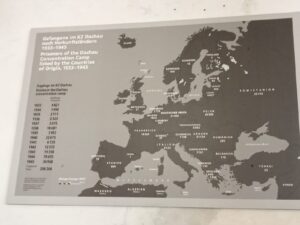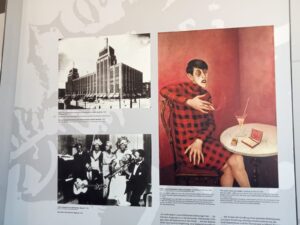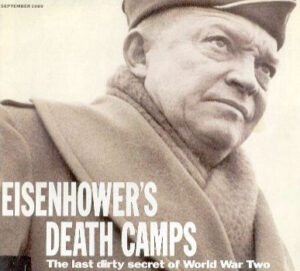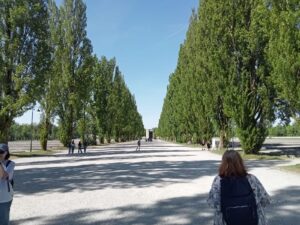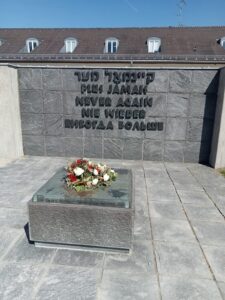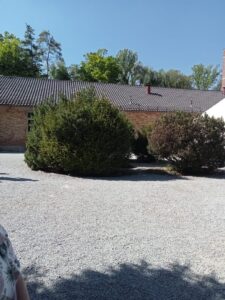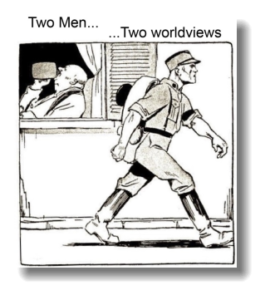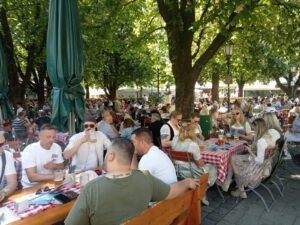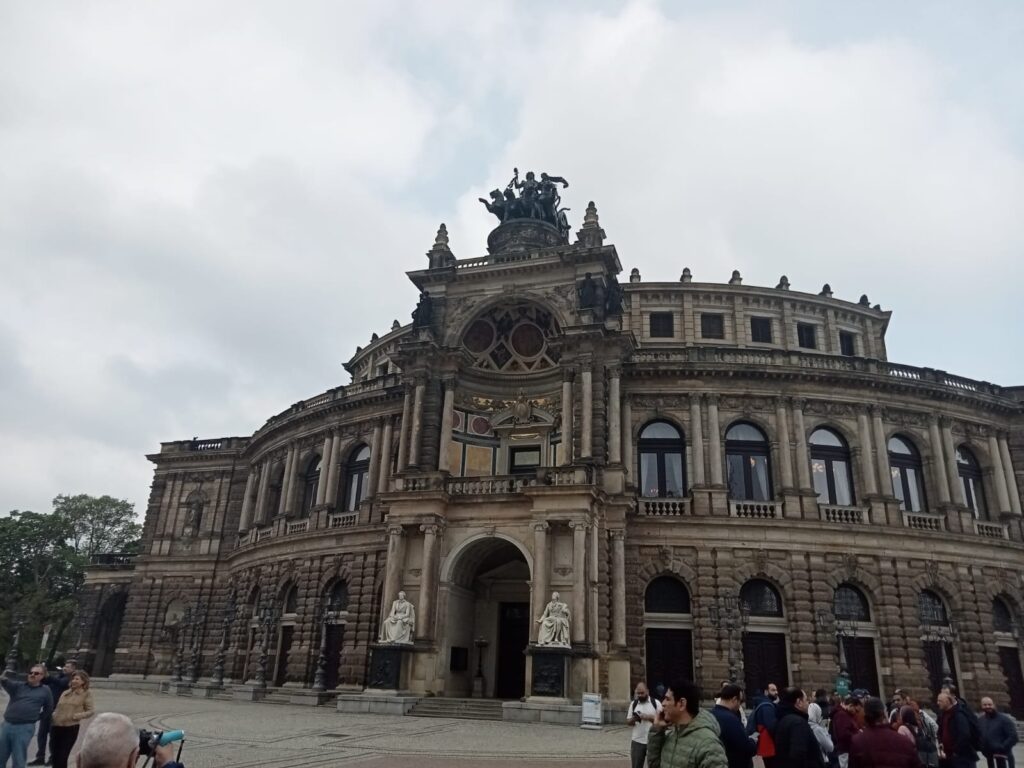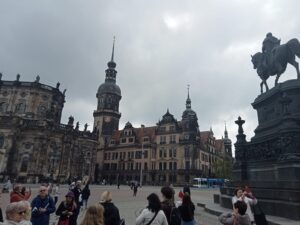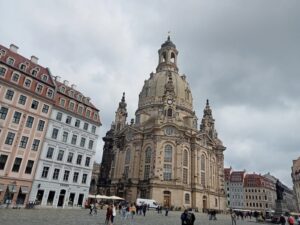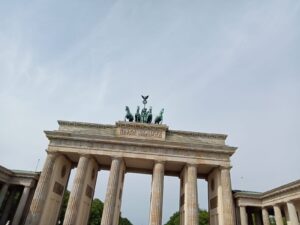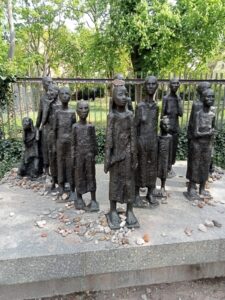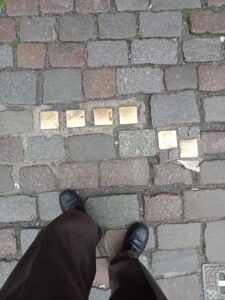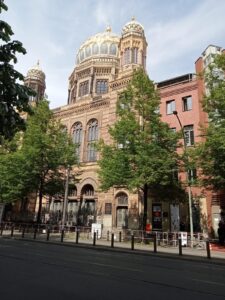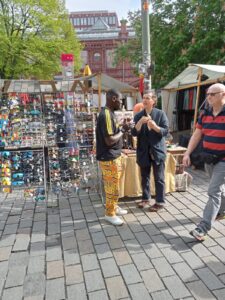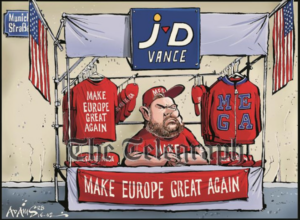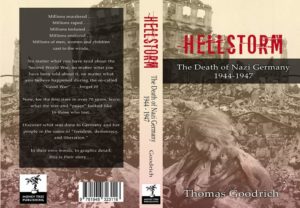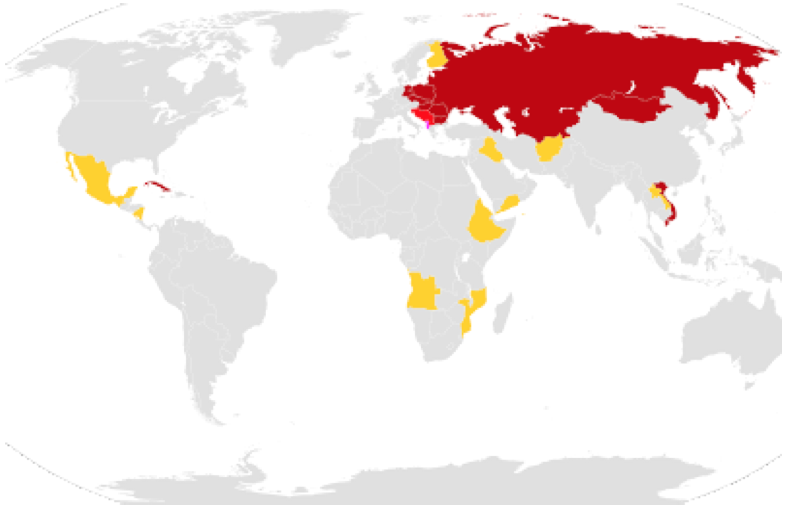 Unlike their democratic counterparts, the Soviet Union made little effort to hide from the world the fate of German prisoners in its hands. Toiling and dying by the tens of thousands in the forests, bogs and mines of Siberia, the captives were slaves pure and simple and no attempt was made to disguise the fact. For the enslaved Germans, male and female, the odds of surviving the Soviet gulags were even worse than escaping the American or French prison camps and a trip to Siberia was tantamount to a death sentence. What little food the slaves received was intended merely to maintain their strength so that the last ounce of energy could be drained from them.
Unlike their democratic counterparts, the Soviet Union made little effort to hide from the world the fate of German prisoners in its hands. Toiling and dying by the tens of thousands in the forests, bogs and mines of Siberia, the captives were slaves pure and simple and no attempt was made to disguise the fact. For the enslaved Germans, male and female, the odds of surviving the Soviet gulags were even worse than escaping the American or French prison camps and a trip to Siberia was tantamount to a death sentence. What little food the slaves received was intended merely to maintain their strength so that the last ounce of energy could be drained from them.
And so, with the once mighty Wehrmacht now disarmed and enslaved, and with their leaders either dead or awaiting trial for war crimes, the old men, women and children who remained in the dismembered Reich found themselves utterly at the mercy of the victors. Unfortunately for these survivors, never in the history of the world was mercy in shorter supply.
* * *
While disarmed and helpless German soldiers were dying by the hundreds of thousands in American death camps, helpless German civilians were likewise dying of deliberate starvation in their uncounted thousands. Indeed, in “peace,” all of Germany itself had become the world’s largest death camp, just as Henry Morgenthau had hoped and planned.
Because Germany’s entire infrastructure had been shattered by the war, it was already assured that thousands would starve to death before roads, rails, canals, and bridges could be restored. Even when much of the damage had been repaired, the deliberate withholding of food from Germany guaranteed that hundreds of thousands more were doomed to a slow death. Continuing the policy of their merciless predecessors, Harry Truman and Clement Attlee allowed the spirit of Morgenthau to dictate their course of action regarding post-war Germany.
No measures were to be undertaken, wrote President Truman to General Eisenhower, “looking toward the economic rehabilitation of Germany or designed to maintain or strengthen the German economy.” In other words, the shattered Germany economy would remain just as it was and the people would simply be allowed to starve.
Not only would food from the outside be denied entry, but US troops were forbidden to “give, sell or trade” supplies to the starving. Additionally, Germany’s already absent ability to feed itself would be stymied even further by withholding seed crop, fertilizer, gas, oil, and parts for farm machinery. Because of the enforced famine, it was estimated that thirty million Germans would soon succumb. Well down the road to starvation even before surrender, those Germans who survived war now struggled to survive peace.
“I trudged home on sore feet, limp with hunger…,” a Berlin woman scribbled in her diary. “It struck me that everyone I passed on the way home stared at me out of sunken, starving eyes. Tomorrow I’ll go in search of nettles again. I examine every bit of green with this in mind.”
“The search for food made all former worries irrelevant,” added Lali Horstmann. “It was the present moment alone that counted.”
While city-dwellers ate weeds, those on the land had food taken from them and were forced to dig roots, pick berries and glean fields. “Old men, women and children,” a witness noted, “may be seen picking up one grain at a time from the ground to be carried home in a sack the size of a housewife’s shopping bag.”
The deadly effects of malnutrition soon became evident. Lamented one anguished observer:
They are emaciated to the bone. Their clothes hang loose on their bodies, the lower extremities are like the bones of a skeleton, their hands shake as though with palsy, the muscles of the arms are withered, the skin lies in folds, and is without elasticity, the joints spring out as though broken. The weight of the women of average height and build has fallen way below 110 pounds. Often women of child-bearing age weigh no more than 65 pounds.
“We were really starving now…,” acknowledged Ilse McKee. “Most of the time we were too weak to do anything. Even queuing up for what little food there was to be distributed sometimes proved too much.”
Orders to the contrary, many Allied soldiers secretly slipped chocolate to children or simply turned their backs while elders stole bread. Others were determined to follow orders implacably. “It was a common sight,” recalled one GI, “to see German women up to their elbows in our garbage cans looking for something edible—that is, if they weren’t chased away.” To prevent starving Germans from grubbing American leftovers, army cooks laced their slop with soap. Tossing crumbs or used chewing gum to scrambling children was another pastime some soldiers found amusing.
For many victims, especially the old and young, even begging and stealing proved too taxing and thousands slipped slowly into the final, fatal apathy preceding death.
“Most children under 10 and people over 60 cannot survive the coming winter,” one American admitted.
“The number of still-born children is approaching the number of those born alive, and an increasing proportion of these die in a few days,” offered another witness to the tragedy. “Even if they come into the world of normal weight, they start immediately to lose weight and die shortly. Very often mothers cannot stand the loss of blood in childbirth and perish. Infant mortality has reached the horrifying height of 90 per cent.”
“Millions of these children must die before there is enough food,” echoed an American clergyman traveling in Germany. “In Frankfurt at a children’s hospital there have been set aside 25 out of 100 children. These will be fed and kept alive. It is better to feed 25 enough to keep them alive and let 75 starve than to feed the 100 for a short while and let them all starve.”
From Wiesbaden, a correspondent of the Chicago Daily News sat with a mother and watched as her eight-year-old played with her only toys, a doll and carriage. The reporter saw at a glance that the thin, frail child was starving.
“She doesn’t look well,” I said.
“Six years of war,” the mother replied, in that quiet toneless manner so common here now. “She hasn’t had a chance. None of the children have. Her teeth are not good. She catches illness so easily. She laughs and plays—yes; but soon she is tired. She never has known”—and the mother’s eyes filled with tears “what it is not to be hungry.”
“Was it that bad during the war?” I asked.
“Not this bad,” she replied, “but not good at all. And now I am told the bread ration is to be less. What are we to do; all of us? For six years we suffered. We love our country. My husband was killed—his second war. My oldest son is a prisoner somewhere in France. My other boy lost a leg… And now…”
By this time she was weeping. I gave this little girl a Hershey bar and she wept pure joy—as she held it. By this time I wasn’t feeling too chipper myself.
When a scattering of reports such as the above began filtering out to the American and British public, many were shocked, horrified and outraged at the secret slaughter being committed in their name. Already troubled that the US State Department had tried to keep an official report on conditions in Germany from public scrutiny, Senator James Eastland of Mississippi was outraged.
“There appears to be a conspiracy of silence…,” announced Eastland. “Are we following a policy of vindictive hatred, a policy which would not be endorsed by the American people as a whole if they knew true conditions?”
“Yes,” replied a chamber colleague, Senator Homer Capehart of Indiana, no doubt with Henry Morgenthau on his mind:
The fact can no longer be suppressed, namely, the fact that it has been and continues to be, the deliberate policy… of this government to draw and quarter a nation now reduced to abject misery. In this process this clique, like a pack of hyenas struggling over the bloody entrails of a corpse, and inspired by a sadistic and fanatical hatred, are determined to destroy the German nation and the German people, no matter what the consequences… This administration has been carrying on a deliberate policy of mass starvation.
The murderous program was, wrote an equally outraged William Henry Chamberlain, “a positively sadistic desire to inflict maximum suffering on all Germans, irrespective of their responsibility for Nazi crimes.”
Because of these and other critics, Allied officials were forced to respond. Following a fact-finding tour of Germany, Eleanor Roosevelt, wife of the late president, professed to see no suffering beyond what was considered “tolerable.” And General Eisenhower, pointing out that there were food shortages all throughout Europe, noted that Germany suffered no more nor less than its neighbors. “While I and my subordinates believe that stern justice should be meted out to war criminals… we would never condone inhuman or un-American practices upon the helpless,” assuaged the general as helpless Germans died by the tens of thousands in his death camps each month.
Although some nations were indeed suffering shortages, none save Germany was starving. Many countries were actually experiencing surpluses of food, including Denmark on Germany’s north border, a nation only waiting Eisenhower’s nod to send tons of excess beef south.
“England is not starving…,” argued Robert Conway in the New York News. “France is better off than England, and Italy is better off than France.”
When Senator Albert Hawkes of New Jersey pleaded with President Truman to head off catastrophe and allow private relief packages to enter Germany, the American leader offered various excuses, then cut the senator short:
While we have no desire to be unduly cruel to Germany, I cannot feel any great sympathy for those who caused the death of so many human beings by starvation, disease, and outright murder, in addition to all the destruction and death of war…. I think that… no one should be called upon to pay for Germany’s misfortune except Germany itself… Eventually the enemy countries will be given some attention.
In time, Germany did receive “some attention.” Late in 1945, the British allowed Red Cross shipments to enter their zone, followed by the French in theirs. Months later, even the United States grudgingly permitted supplies to cross into its sector. For millions of Germans, however—the old, the young, the injured, the imprisoned—the “attention,” as originally planned, was far too little, far too late.
Had rapes, slavery and starvation been the only trials Germans were forced to endure, it would have been terrible enough. There were other horrors ahead, however—some so sadistic and evil as to stagger the senses. The nightmarish fate that befell thousands of victims locked deep in Allied prisons was enough, moaned one observer, to cause even the devout to ask “if there really were such a thing as a God.”
